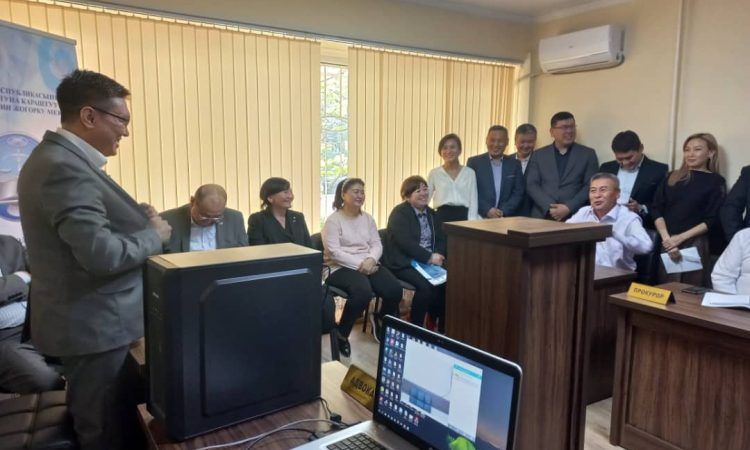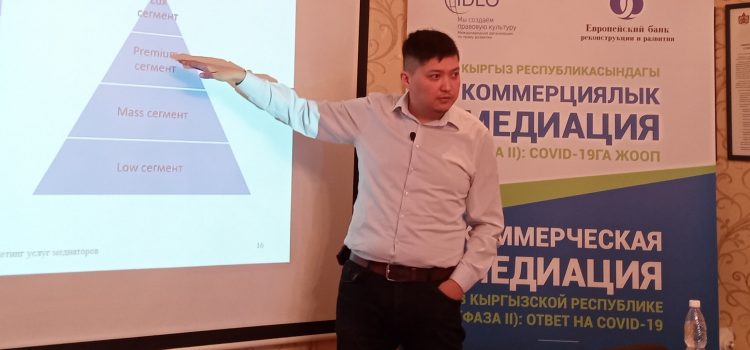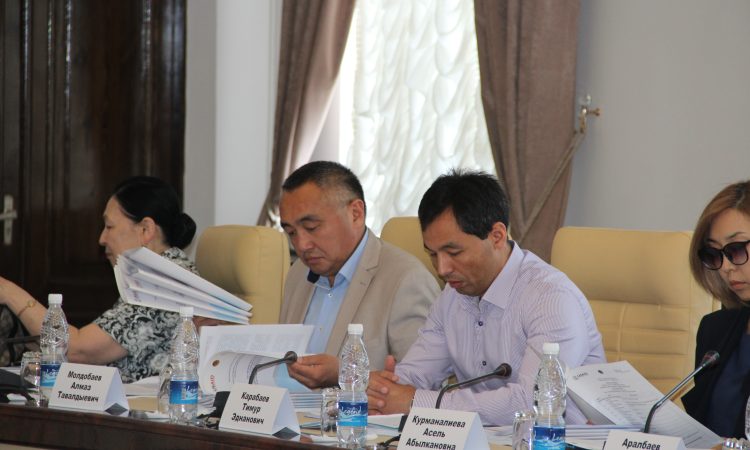Two months later, new criminal legislation comes into force, the concept of which is built on the principles of humanizing justice and strict observance of the rule of law at all stages of a criminal case.
On October 30, during a meeting in the ExpertCafe format, representatives of law enforcement agencies, prosecutors, lawyers, the academic environment and the judicial system told about exactly what changes will take place on January 1, 2019, and how these changes will affect the lives of ordinary citizens.
Humanization of justice
So, in the new criminal legislation concepts such as crime and misconduct are separated. To misconduct attributed actions that do not represent a great danger or harm. Accordingly, the types of punishments will be milder, fines, correctional work, removal from office, etc., but not imprisonment.
Coordinator of the new criminal legislation of the Government of the Kyrgyz Republic, Head of the Investigation Department of the Ministry of Internal Affairs of the Kyrgyz Republic, Begaly Pirmatov, said that after the new year, law enforcement agencies will create inquiry units to investigate misconduct.
“In order to optimize work in law enforcement agencies, 625 people have been reduced, 225 full-time units will be created in the inquiry units,” Pirmatov said.
Experts unanimously recognize this innovation as progressive: the deprivation of liberty for a crime of small and medium gravity has long been necessary to reconsider. According to statistics, relapse among prisoners is 40%, which means that the punitive method only worsens the overall criminality in the country.
The new Criminal Code provides for a reduction in prison terms for certain types of crimes, which, according to the logic of the authors of the law, will reduce the cost of prisons.
The balance of powers between the law bodies is changing
From the new year, all crimes and misdemeanors will necessarily be registered in the electronic database – the Unified Register of Crimes and Offenses of the EPPR.
According to Azizbek Shukurbekov, the prosecutor of the Office of the Prosecutor General of the Kyrgyz Republic, information about the start of pre-trial proceedings, procedural actions, the movement of the criminal case, etc. will be entered into the Base.
“An interdepartmental order has already been signed with all law enforcement agencies on the introduction of a single form of a statement about the crime committed and a single form of the protocol on the crime being committed or being prepared. When filling out forms, information will be immediately entered into the program. Access will be provided to the supervising prosecutor as well as to the parties to the process. For example, the applicant, having received a ticket and a code, will be able to track at what stage his application is, who is considering his case,” Shukurbekov said.
Thus, law enforcement agencies will keep records and records of crimes and misdemeanors, while the prosecutor’s office will oversee the legality and timeliness of registration. As the experts assured, the information in the EP cannot be changed or deleted.
Judicial control of the investigation
From the new year, the Institute of the investigative judge is introduced. The investigating judge ensures the legality of the procedural actions from the moment the application is received until the transfer of the case to the court. As the sector head for work with the legislation of the Supreme Court Rasiya Eralieva, said, the investigating judge has a lot of responsibility and wide powers.
It is the investigative judge who determines the legality and validity of the detention, the need for special investigative actions, such as listening to conversations, obtaining information about connections between subscribers, audio and video monitoring of a person or place, etc.
The investigating judge has the right to deposit evidence, that is, the interrogation of a witness and/or a victim at the request of one of the parties.
The deposition “preserves” the testimony before the court since after this procedure there will be no further interrogation. The main purpose of the deposit is to prevent intimidation of witnesses and victims, to avoid re-interrogation of minors, without subjecting them to additional psychological trauma.
But at the same time, the investigating judge does not have the right to investigate or decide on the guilt or innocence of the suspect in court. He should monitor compliance with the law during investigative actions.
Practice polishes theory
Now law enforcement agencies, the judicial system, the prosecutor’s office, the legal profession, in cooperation with the donor community, conduct training for their employees, implement pilot projects in order to launch them from January 1, 2019. Experts say that certain gaps in criminal law will be eliminated during practice.
“For example, in Kazakhstan, after the introduction of the new Criminal Code, 218 changes were made,” the Supreme Court judge Askat Sydykov said.
“We should not slow down the introduction of new criminal legislation for fear of possible obstacles. Obstacles must be overcome since it is no longer possible to live according to the old code, ”said one of the innovators, the dean of the law faculty of the Kyrgyz National University.
[This content was automatically translated from Russian language]






